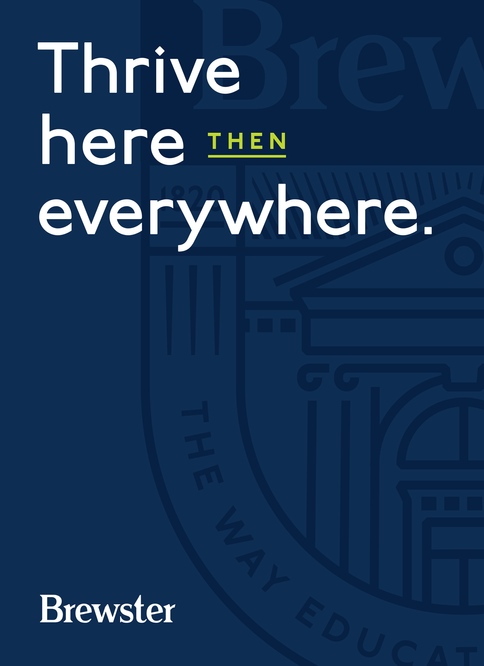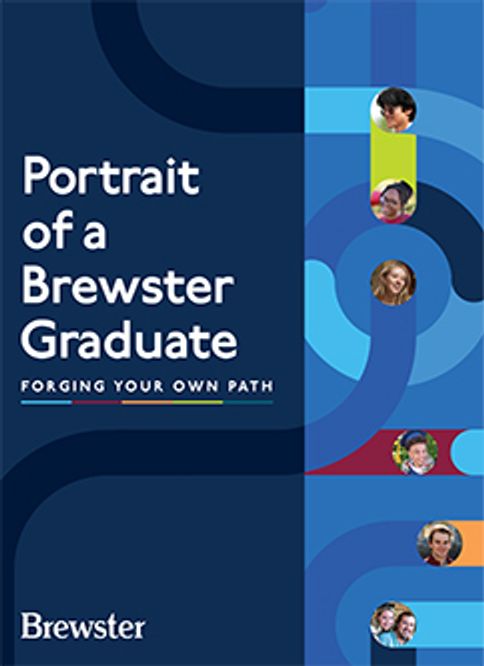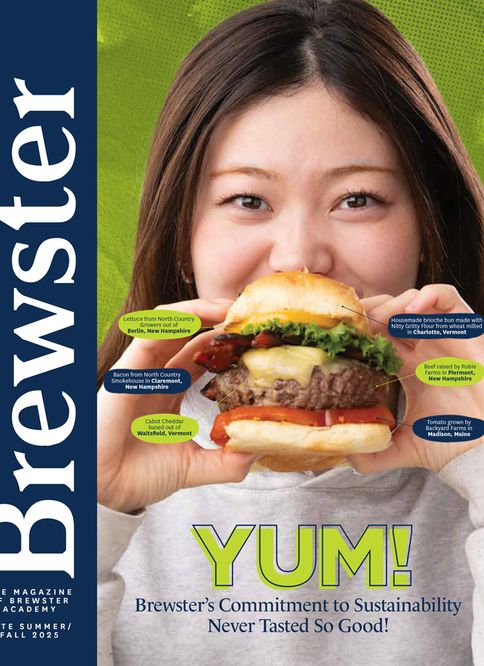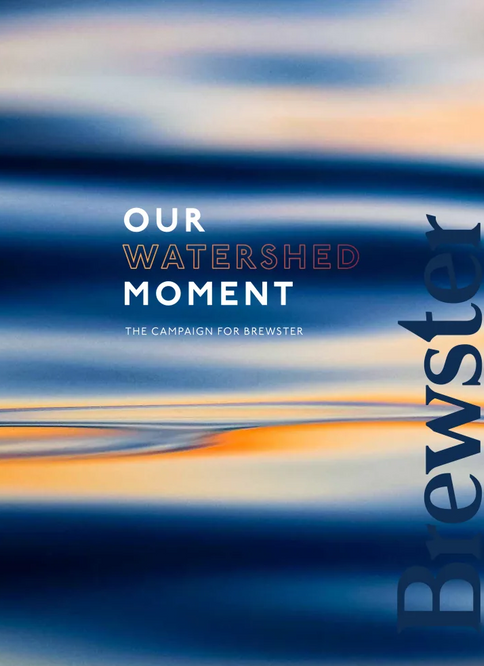
Four Years of AP Capstone Program at Brewster

By Marta Filip-Fouser, Dean of Teaching and Learning | Educational Research
Summer 2021: A Pilot Course
In the late Spring of 2021, I was asked by the then-Summer Programs Director, Jonathan Fouser, to design and teach a summer course to a group of Royal Thai Scholars that would serve as a bridge between high school and college. Traditionally, the Royal Thai Scholars spend their summers at Brewster Academy before departing to different boarding schools, but because of the COVID-19 pandemic, this group was not able to return to Thailand after the conclusion of their postgraduate year and prior to commencing their college experience.
So, with a background in teaching history, humanities, and ESL courses and a recent doctoral study on civic identity formation among adolescents, I designed a multidisciplinary course that focused on the exploration of the self, others, and the larger world. Dialogue—in the form of whole-class spider-web discussions or small group conversations—became the course’s primary pedagogy; it afforded students opportunities to advance their communication skills, make sense of their sojourn experiences, and bond as a group while they were immersing themselves in the summer in Wolfeboro. Over the course of several weeks, students read short stories, political treaties, watched TED Talks, analyzed artworks, and together, discussed and debated what it meant to be a citizen of multiple communities. Concurrently with teaching the course, I was also making adjustments and hoped to teach it in the fall as one of our newest electives, AP Seminar, the first year of the two-year AP Capstone Program.
Fall 2021: The Inaugural AP Seminar Class
During the Fall of 2021, we offered two sections of the AP Seminar course. One, a revised version of my summer class, What Makes a Citizen? focused on the interdisciplinary conceptions of citizenship, and the other, taught in conjunction with our immersive program, the Field Term, by Brewster alumnus and former Science teacher, Dr. Ben Rendall, centered on human relationships with the natural world. During the course of the fall trimester, both groups came together to practice their argumentative skills, get to know each other, and enjoy the beautiful nature of New Hampshire.

AP Seminar: Year One of the AP Capstone Program
AP Seminar differs from any other AP course in that it does not require coverage of any specific content. In fact, it requires that each instructor select unique content and design a course that is centered around an inquiry framework (QUEST) and meets specific learning objectives. In addition to the End of Course Exam, students complete two Performance Tasks: a 1,200-word research paper accompanied by a Team Multimedia Presentation (during the Winter Trimester at Brewster) and a 2,000-word individual research-based paper and an Individual Multimedia presentation (during the Spring Trimester). Both papers are uploaded to the College Board portfolio and scored externally, while the presentations are assessed by the AP Seminar instructors using clearly defined criteria set by the College Board. Both Performance Tasks provide opportunities to learn and practice different sets of skills. While Performance Task 1 is an exercise in intentional collaboration, conflict resolution, critical examination of material, and academic writing, Performance Task 2 teaches students to engage deeply in a topic over a sustained period of time, plan their research, and give and receive feedback.
AP Seminar, I think, is an excellent way to introduce students to the possibilities of research, the power of one’s inquiry, and the thrill of collaborative discovery. For the past four years, our students have explored a wide range of topics that stemmed from their long-term passions or from newly acquired interests. For example, one year, a student decided to examine the significance of indigenous knowledge in natural disasters, while another one focused on the role of religion and spirituality in coping with trauma, and yet another one explored past economic crises’ impact on the resilience of the current economy. Each year creates new opportunities for the young researchers to incorporate their interests and present an argument in a concise, informed, and logically organized manner. Also, the AP Seminar course is an excellent and essential training for the second year of the program, the AP Research course.
AP Research: Year Two of the AP Capstone Program
I have thoroughly enjoyed welcoming students to my AP Research course for the past three years. For one, I know all of them from my previous years of teaching AP Seminar, so the start-of-the-year transition is different and definitely shorter. But what I love the most is that the course relies entirely on students’ individual inquiries. To be specific, each student designs and completes a research study, writes a 4,000-5,000 word research paper, and in a 15-20 minute presentation in the spring, explains the study and answers a series of questions.
Students’ topics usually provide an insight into their interests, and those are plentiful and diverse. In the past three years, we have had students pursue research in sustainable practices, language acquisition, global travel, screen activity and sleep patterns, and more. Aside from traditional academic skills typical for a writing course, students learn how to ask for an interview, how to design and ask questions, and how to collect and analyze quantitative and qualitative data in ways that are ethical and unbiased. They also learn that research is an iterative process and that external circumstances teach us flexibility, creative problem solving, and self-advocacy. And, as of late, they also discovered that even with so many excellent AI tools at our disposal, human thinking and creativity are critical to one’s ability to design novel solutions and to articulate them to various audiences.

2025: AP Seminar and AP Research Collab
This year, AP Seminar and AP Research were taught by two different instructors, which allowed for more intentional opportunities to bring the groups together and create an environment of greater collaboration and exchange of experiences and ideas. For example, the AP Research students were invited to ask questions to AP Seminar students during the Team and Individual Multimedia Presentations. Conversely, the AP Seminar students asked oral defense questions during the AP Research Presentations and Oral Defense. Also, after the submission of all of the work, we all got together for a joint session of AP Seminar and AP Research to collaborate, reflect on the year, and laugh. To me, it will be a moment to cherish: a group of 16 students who took the risk to pursue research on topics of their passion and who also joined the 51 other Capstonians who completed AP Seminar, AP Research, or both. I hope they continue to ask questions, refine their inquiries, and use their human capacities to solve problems and engage with their communities.













